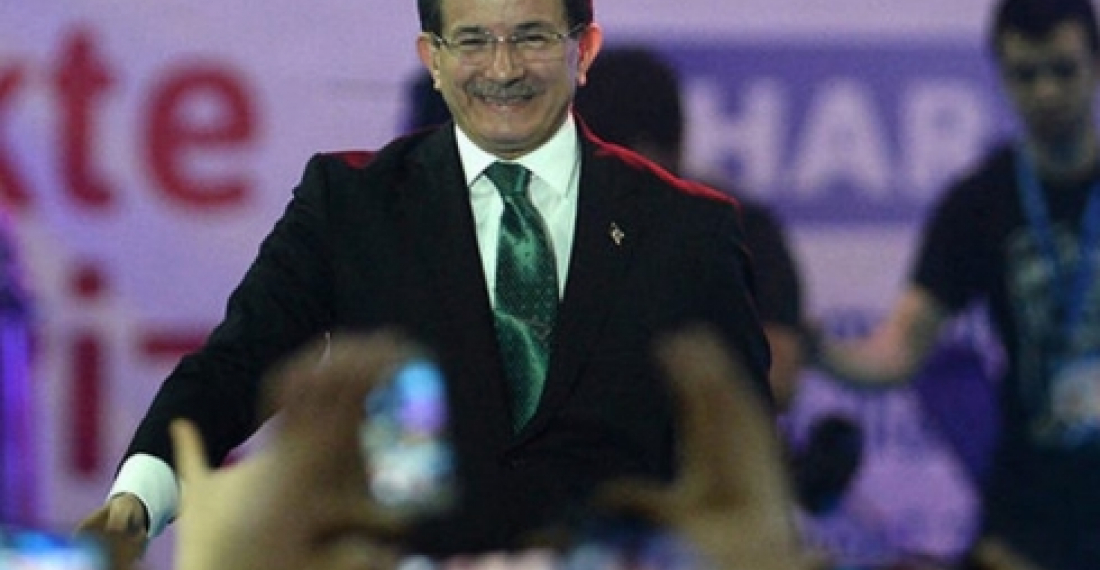Turkish Prime Minister, Ahmit Davitoglu used the occasion of the Novruz Spring Festival to push forward a message of peace that has echoed beyond Turkey. Davitoglu spoke of the decades-old conflict between the Kurdistan Workers' Party (PKK) and Turkey, at a spring festival organized by the ruling Justice and Development Party (AKP) in Istanbul on March 21.
Davutoglu stated that the goal of the AK Party is to keep the nation's 77 million people together as one, regardless of ethnic or religious differences.
"Nevruz signifies unity for us" he said, adding that the government is determined to preserve the unity of Turkey, and is against producing new enmity over the pains experienced in the past. "We are certainly aware that we will only be able to preserve our unity and amity through dialogue and appealing to the hearts and minds of the people" Davutoğlu said.
Davutoglu warned that there are provocateurs who want to exploit the reconciliation process for political interests and fuel hostility amongst people throughout the country.
"Let us leave the old songs aside and sing songs of brotherhood, leave anger aside and speak only with the language of love" the Turkish prime minister said, and added: "Instead of burying our youth in the ground, let's bury the arms, and eternally bury the pain of mothers whose children have been martyred." Davutoğlu said that the world is a mortal place and the only thing that is eternal is fraternity, unity and amity.
Davutoglu reassured people that the reconciliation process will succeed as both sides have come a long way in terms of resolving many of the issues. He added that it is crucial for all sides to focus on a common goal and contribute to the peace, brotherhood and unity in Turkey.
On the same day Abdullah Ocalan, the jailed leader of the outlawed Kurdistan Workers' Party (PKK), called on the PKK to convene an extraordinary congress to "end the 40-year-long arms struggle".
The two-page letter of Ocalan was read during Novruz festivities in the southeastern province of Diyarbakır on March 21. Peoples' Democratic Party (HDP) Deputy Parliamentary Group Chair Pervin Buldan read the Kurdish version of the statement while her colleague Sırrı Süreyya Önder read the Turkish one.
"I find it necessary for PKK to convene a congress to end the 40-year-long armed struggle against TC [referring to the Republic of Turkey] and to determine political and social strategies and tactics in accordance with the spirit of new era," the letter said.
In the statement, Ocalan stressed the need for a "democratic solution" to Turkey's Kurdish problem, arguing that the "meaningless and merciless identity wars" were the result of "the neoliberal crisis caused by the imperialist capitalism and its local collaborators."
He said that the new era for Kurds "would be based on free, egalitarian, constitutional citizenship within the Republic of Turkey."
Hundreds of thousands convened at Diyarbakır's Nevruz Square to listen to the historic letter, while celebrating the arrival of spring despite pouring rain and biting cold.
More than 1,000 reporters, 200 of whom are foreign, have been accredited to follow the event, which was also attended by representatives from 24 embassies in Turkey.
Commonspace.eu political editor said in a comment that Turkey was on the eve of a historic reconciliation that can end the decades long conflict which has claimed the lives of many thousands, especially Kurdish civilians.
"The AK Party government seems to have mustered the political will to push forward with reconciliation despite some opposition in both the country and within the ranks of the party as well. Turkish nationalists have been criticising the government accusing it of endangering Turkish statehood and integrity. But most Turks seem to support the peace process and the Turkish government has also been encouraged by its international allies to bring the negotiations to a successful conclusion. The role of the imprisoned leader Abdulla Ocalan in pushing for a solution is significant. Ocalan remains the charismatic leader and symbol of the Kurdish struggle despite years of imprisonment. The Turkish government has understood that it has to work through Ocalan if it wants a solution. This policy is now about to give positive results. The next weeks and months will however remain difficult, with the danger that provocations may derail the process. Turks and Kurds in Turkey deserve peace. Politicians must therfore seize this moment and bring the process quickly to a successful conclusion."
source: commonspace.eu with Daily Sabah, Hurriyet Daily News and other media outlets.
photo: Prime Minister Davitoglu calling for peace at a Novruz rally in Istanbul on 21 March 2015. (Picture courtesy of Daily Sabah, Turkey)







